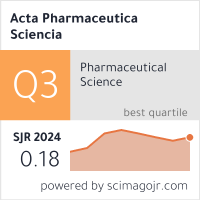ACTA Pharmaceutica Sciencia
2022 , Vol 60 , Num 1
Histological effect of traditional rose ointment application in the excisional wound model
1 Histology and Embryology Department, Faculty of Medicine, İstanbul, Turkey2 Medical History and Ethics Department, Faculty of Medicine, İstanbul, Turkey
DOI : 10.23893/1307-2080.APS.6003 Viewed : 15666 - Downloaded : 4818 The aim of our study was to evaluate the histological effects of traditional rose ointment application on artificially induced skin wound treatments. 18 adult BALB/c mice were artificially wounded by the formation of a puncture-generated exhaled wound model. Wound tissues of mice were analyzed histologically with light microscopy after hematoxylin eosin and Masson trichrome stainings were performed. Vascular endothelial growth factor (VEGF) expressions were evaluated by immunohistochemical analysis in order to demonstrate the angiogenesis throughout the tissue. Tissue regeneration rate was significantly increased in traditional rose ointment treated group although there was no significant difference in granulation and angiogenesis between the groups. Traditional rose ointment treatment seems to have a positive effect in the treatment of skin wound by inducing the regeneration capacity in the tissue. Further studies are needed to confirm this finding and to evaluate its potential to be used in wound healing. Keywords : Phytotherapy, Wound Healing, Rosa damascena, Histology, Rats





